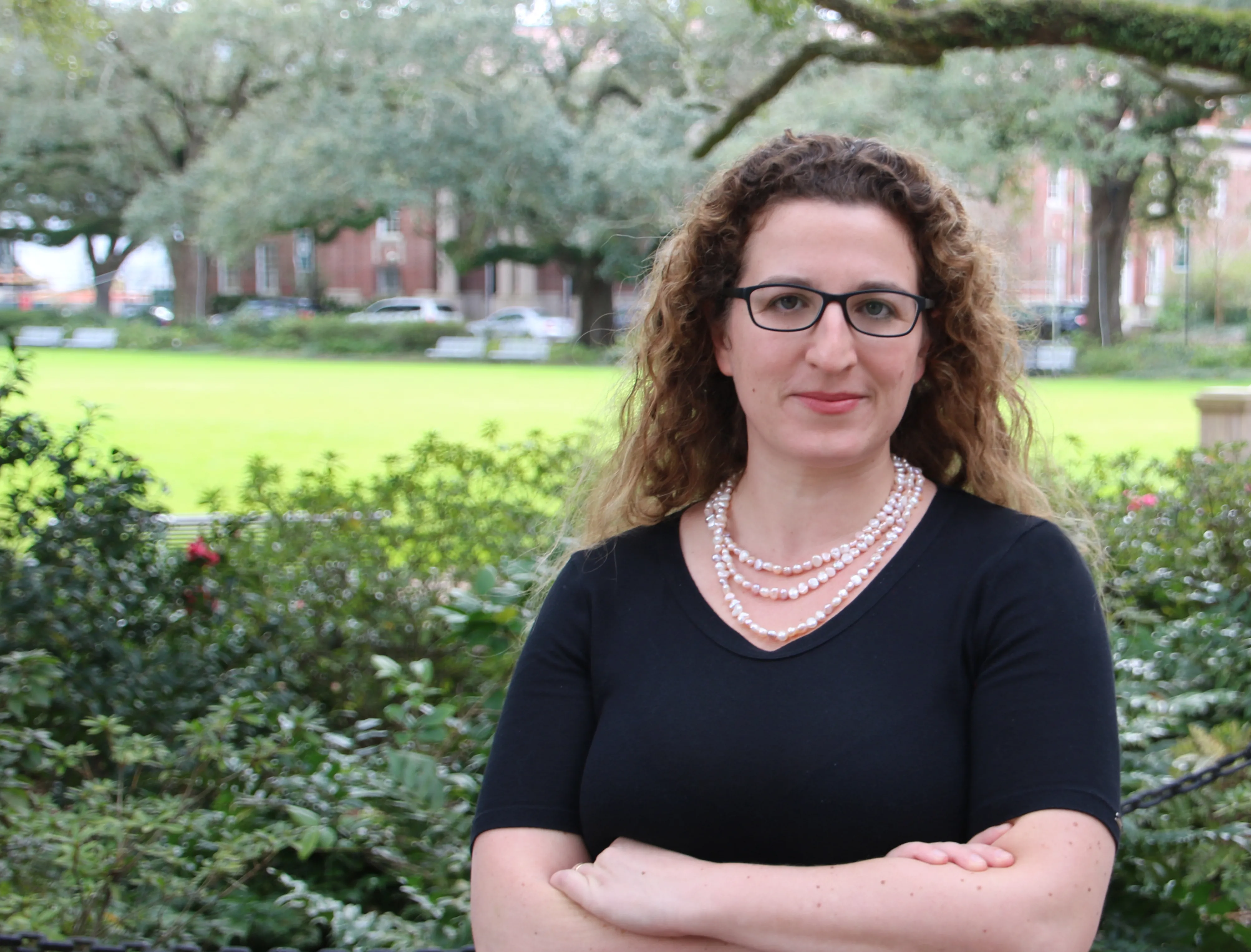
Classical Studies professor Emilia Oddo’s scholarship focuses on the ancient pottery of Greece. But why? What can studying ceramics from the Late Bronze Age (3000-1000 B.C.) tell us about today?
Oddo’s research explores how we can extract information from objects, such as pottery, to learn about the social organization of cultures and the formation of identity. As Oddo explains, “when you factor out all of the technology, what makes us look like a group? Objects—various types of objects such as clothing, kitchen utensils, and so on. Objects give us hints about socialization, and ways of socializing that are material but not technology oriented. Every object has to tell that story. To me, that’s amazing!”
As a professor, Oddo works to break down the hard lines often drawn between the sciences and liberal arts: “Everything about archeological work is scientifically driven and organized.” She reinforces with her students how incredibly interdisciplinary archeology is, intersecting with economics, chemistry, art history, sociology, and more. The figure of the archeologist synthesizes all of these elements and creates a narrative to help one understand the bigger picture of a time and place. Altogether, she sees her practice as a way to evaluate the human experience, and this approach is present in her teaching in the classroom and in the field.
In past summers, Oddo has led small groups of SLA students to Crete to assist in her research. Students play an important role in the preliminary steps of her ceramic analysis, sorting pottery, labeling objects, tracking contextual information, and helping check items in the project database. Oddo mentors each student closely, training them on how to handle the pottery and how to extract meaningful information from it, leading them in museum or site trips to teach them about the contexts of the pottery, and keeping them engaged with the bigger questions they are trying to answer together.
Oddo believes these opportunities are incredibly fruitful for students, both technically and conceptually. “In archeology, or in ancient history, you work on societies that have a different way to process the world, and this makes you aware of how idiosyncratic we all are as groups. It makes you more open, in a way, to accept different mentalities and traditions. And it also prepares you to understand that your values are not universal necessarily.” Oddo understands these ideas can be challenging. “How do you cope with this? How do you reconcile this? Ultimately, realizing how differently human societies, present or past, have chosen to represent themselves gives us a more open and inclusive point of view and it makes us aware of the way we build our thoughts and choose to construct our identity.”
This month, Oddo has published a new scholarly article titled "Pottery Styles and Social Dynamics at Neopalatial Myrtos-Pyrgos: Identifying Southeast Crete as a Ceramic Region" in the American Journal of Archaeology. In the article, Oddo explores how the pottery from Southeast Crete, an area totally under explored, shows how savvy the Cretans were when it came to selecting the style for their pottery, from daily life consumption (in traditional style) to display of wealth and power (in Knossian style). “This article really aims to open a new branch of archaeological enquiry in Prehistoric Greece,” said Oddo.

